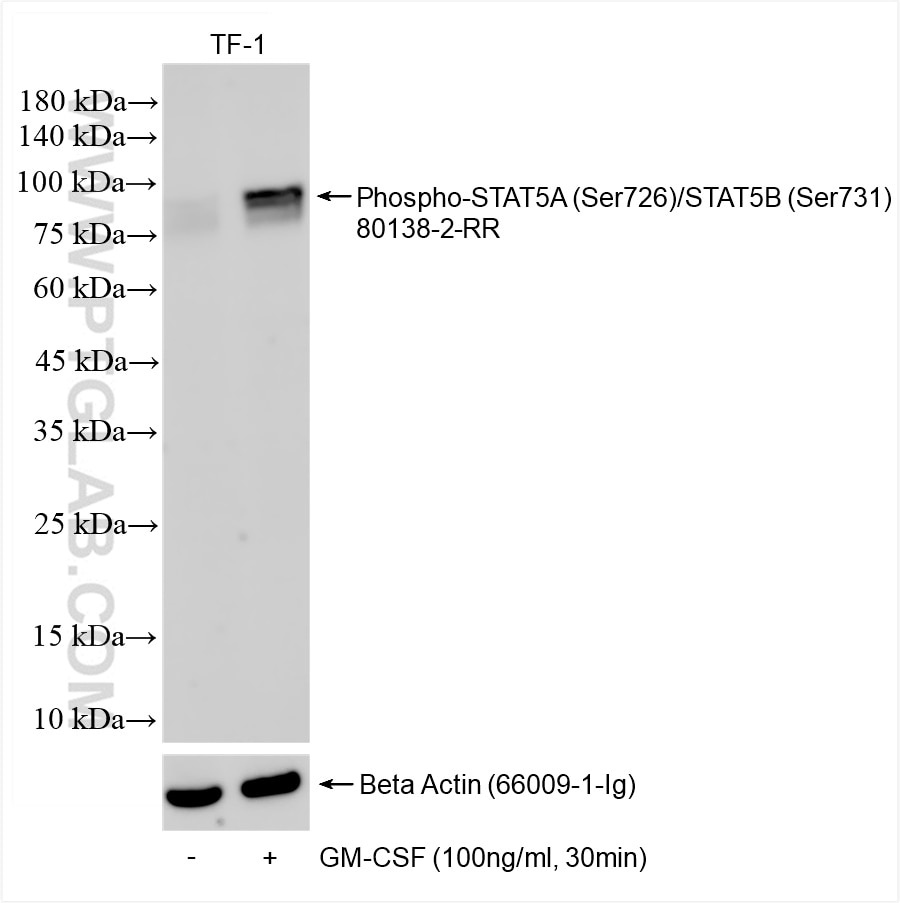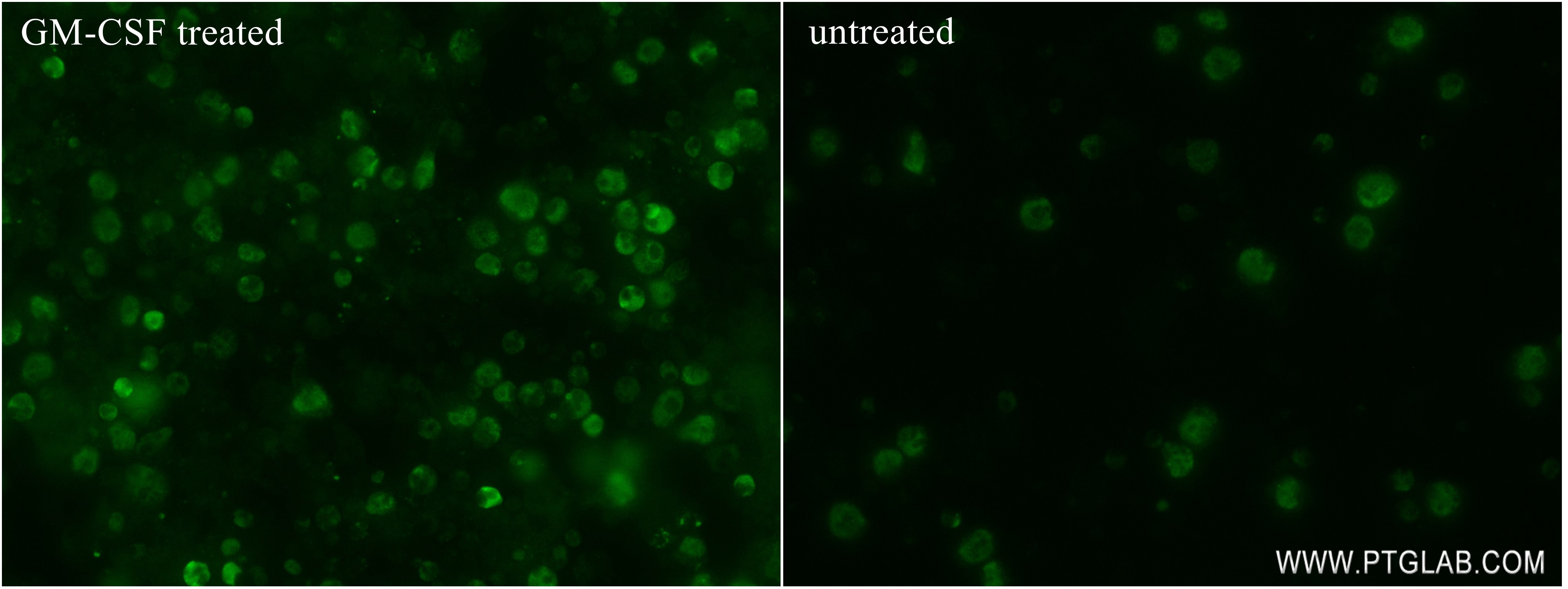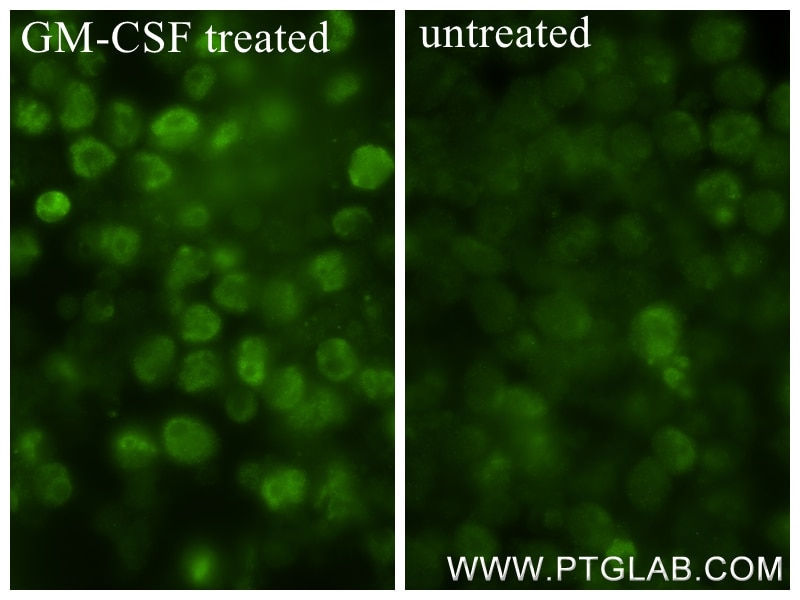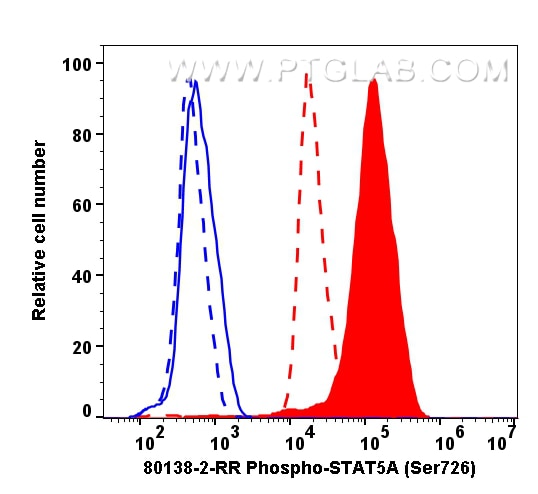Tested Applications
| Positive WB detected in | GM-CSF treated TF-1 cells |
| Positive IF/ICC detected in | GM-CSF treated TF-1 cells |
| Positive FC (Intra) detected in | 100 nM Calyculin A (30 minutes) treated TF-1 cells |
Recommended dilution
| Application | Dilution |
|---|---|
| Western Blot (WB) | WB : 1:5000-1:50000 |
| Immunofluorescence (IF)/ICC | IF/ICC : 1:200-1:800 |
| Flow Cytometry (FC) (INTRA) | FC (INTRA) : 0.40 ug per 10^6 cells in a 100 µl suspension |
| It is recommended that this reagent should be titrated in each testing system to obtain optimal results. | |
| Sample-dependent, Check data in validation data gallery. | |
Published Applications
| WB | See 1 publications below |
Product Information
80138-2-RR targets Phospho-STAT5A (Ser726)/STAT5B (Ser731) in WB, IF/ICC, FC (Intra), ELISA applications and shows reactivity with human samples.
| Tested Reactivity | human |
| Cited Reactivity | human, mouse |
| Host / Isotype | Rabbit / IgG |
| Class | Recombinant |
| Type | Antibody |
| Immunogen |
Peptide Predict reactive species |
| Full Name | signal transducer and activator of transcription 5A |
| Calculated Molecular Weight | 794 aa, 92 kDa |
| Observed Molecular Weight | 90-95 kDa |
| GenBank Accession Number | BC027036 |
| Gene Symbol | STAT5A |
| Gene ID (NCBI) | 6776 |
| RRID | AB_3670468 |
| Conjugate | Unconjugated |
| Form | Liquid |
| Purification Method | Protein A purfication |
| UNIPROT ID | P42229 |
| Storage Buffer | PBS with 0.02% sodium azide and 50% glycerol, pH 7.3. |
| Storage Conditions | Store at -20°C. Stable for one year after shipment. Aliquoting is unnecessary for -20oC storage. 20ul sizes contain 0.1% BSA. |
Background Information
STAT5 proteins consisting of STAT5A and STAT5B are the main targets of IL-3 signaling. Upon cytokine stimulation, JAK2 phosphorylates STAT5 and the phosphorylated STAT5 proteins dimerize and translocate into the nucleus, where, by binding DNA, they activate target genes including c-fos. In addition to this JAK-catalyzed tyrosine phosphorylation, STAT5 may undergo serine phosphorylation in the carboxy-terminal P(M)SP site in response to prolactin. (PMID: 15795318)
Protocols
| Product Specific Protocols | |
|---|---|
| IF protocol for Phospho-STAT5A (Ser726)/STAT5B (Ser731) antibody 80138-2-RR | Download protocol |
| WB protocol for Phospho-STAT5A (Ser726)/STAT5B (Ser731) antibody 80138-2-RR | Download protocol |
| Standard Protocols | |
|---|---|
| Click here to view our Standard Protocols |










